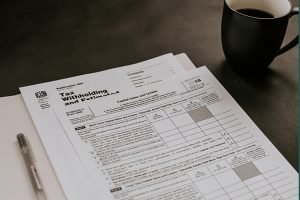It’s not unusual for a company to find itself in financial trouble, but the COVID-19 outbreak is certainly testing many more businesses across the UK to their limit.
The Government’s package of coronavirus emergency measures has been designed to support public services, people and businesses – but do any of them apply to limited companies?
New figures from the Office of National Statistics (ONS) suggest that more than 700,000 ‘self-employed’ people could miss out on this support due to their status as limited company directors paid in dividends. And the data doesn’t even consider those who have become directors of limited companies during 2020.
The Government’s schemes and packages include:
- The Coronavirus Job Retention Scheme
- Deferring VAT and Self-Assessment payments
- Statutory Sick Pay relief package for small- and medium-sized businesses (SMEs)
- 12-month business rates holiday for all retail, hospitality, leisure, and nursery businesses in England
- Small business grant funding of £10,000 for all companies in receipt of small business rate relief or rural rate relief
- Grant funding of £25,000 for retail, hospitality, and leisure businesses with property with a rateable value between £15,000 and £51,000
- A new lending facility from the Bank of England to help support liquidity among larger firms
- The HMRC Time To Pay Scheme
- The Small Business ‘Bounce Back’ Loan scheme
Unfortunately, these support packages do not apply to directors who are being paid in dividends, but there are other options available.
If your business needs short-term cash flow support, then you may be eligible for the new Coronavirus Business Interruption Loan Scheme.
Delivered by the British Business Bank, it enables companies to apply for a loan of up to £5m, with the UK Government covering up to 80% of any losses with no fees. In addition, the lender can provide finance in the form of term loans, overdrafts, invoice finance, and asset finance.
Businesses can access the first 12 months of that finance interest-free, as the Government will cover the interest payments during that period.
You may also be able to claim a grant through the Self-Employment Income Support Scheme, which allows you to claim a taxable grant worth 80% of your trading profits up to a maximum of £2,500 a month.
This grant will be subject to Income Tax and National Insurance contributions but does not need to be repaid. While you wait for the grant, you can also claim Universal Credit.
You can claim if you are a self-employed individual or a member of a partnership and meet the following criteria:
- You have submitted your Self-Assessment tax return for the tax year 2018 to 2019 (this must have been done by 23 April 2020)
- You have traded in the tax year 2019 to 2020
- You are trading when you apply, or would be except for coronavirus
- You intend to continue to trade in the tax year 2020 to 2021
- You have lost trading profits due to the coronavirus pandemic
If you are eligible for the scheme, HMRC will aim to contact you by the middle of May and invite you to claim using the gov.uk online service.
What steps can you take instead?
Below are some business rescue options, together with closure options if you think your business needs to close or is unlikely to survive the pandemic.
Company Voluntary Arrangements
A Company Voluntary Arrangement (CVA) can be implemented when a business is in trouble but shows signs of being financially viable and could still be profitable in the future.
The arrangement means all of the company’s debt can be transported into one manageable monthly payment, so it can carry on trading without worrying about the threat of liquidation or winding-up orders. Petitions or liquidations being threatened.
The average cost of CVA is somewhere between £5,000 and £10,000, while the creditors ultimately decide the cost of supervising the arrangement.
Read more about Company Voluntary Arrangements
Administration
Pre-packaged or traditional administration will halt all legal action against a company. This will also stop creditors from winding up the company and give you time to explore your options.
An administrator (also known as an Insolvency Practitioner) will be called in to see whether the company can continue trading or be sold so that new owners can turn the company around. If it can’t be sold, the company will be closed down and the assets sold to cover its financial responsibilities.
At this stage, you may also consider voluntary liquidation, which will give you time to prepare to handle obligations such as personal guarantees, redundancies, and lease terminations.
Company Restart
If you’re facing the worst-case scenario of your business being unable to pay its bills, one option is to close your company and start again. Still, the law must be carefully considered as strict legal boundaries define what you can and can’t do.
This legislation is in place to stop directors dumping one company simply starting another to escape debts (and the consequences).
When your failing company has legally closed, you can continue to trade in a new business. There may even be the possibility of starting a new company with assets of the old, bought for the new business at more affordable costs.
Read more about Limited Company Restarts
Liquidation
When a business finds itself in too much debt to recover through recovery procedures such as financing, administration, or a Company Voluntary Arrangement (CVA), it may be that a Creditors’ Voluntary Liquidation (CVL) is the only viable course of action.
When your company is in liquidation, no legal proceedings can be taken against it. Providing you have no personal liability for your company’s debts, your creditors will be unable to take any further action against you.
Read more about liquidation.
Dissolution
Voluntary dissolution can be used to close down your limited company under specific circumstances.
The process includes removing the business from the Companies House register, on which all official company data is displayed. Once the name is removed from this register, it will no longer legally exist.
The most important thing to remember is that you cannot dissolve your business if it has significant debts to its name, and you must meet several requirements.
Read more about dissolving a limited company.
The Future Strategy team can talk you through the best options to help save your business or advise you on what to do if you’re thinking about closing your company and starting again. If you would like more information, please contact us today to find out more.





